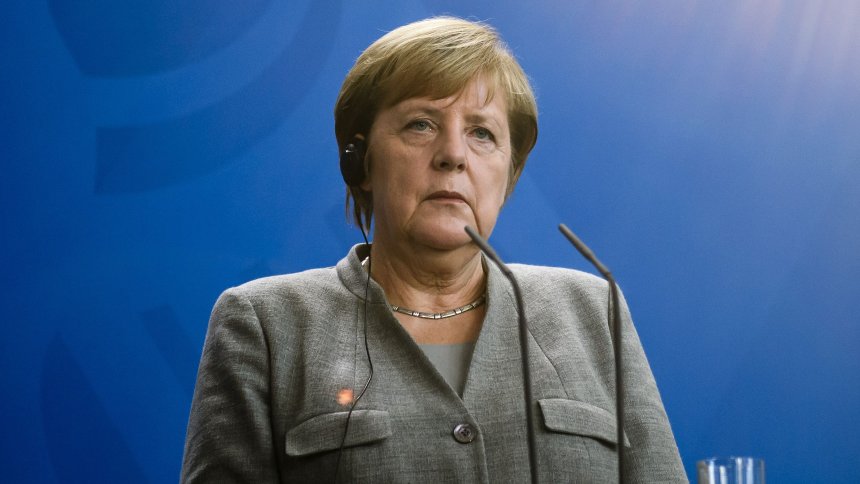New Election Setback for Angela Merkel
October 30, 2018 | Expert Insights

Voters in Germany’s most prosperous states, Hesse, upset Chancellor Angela Merkel’s conservatives again in an election that was seen as a barometer of her and her party’s standing with the German public.
Background
Angela Merkel became the 34th Chancellor of Germany in 2005 and has since been in power. She is also the leader of the Christian Democratic Union (CDU). A former research scientist, she became a politician in 1989. By 1991, she had been appointed the Minister for Women and Youth in the federal government under Chancellor Helmut Kohl in 1991. In 1994, she was the Minister of Environment.
In 2005, she became the first female Chancellor of Germany. By 2013, during the general election, Merkel was seen as a reliable leader in Germany. Her party won the election with 41.5% of the vote - a landslide victory. She is a strong proponent of transatlantic economic relations and seen as flagbearer for free trade. She is the longest-serving incumbent head of government in the European Union.
She has faced heavy criticism domestically regarding the issue of refugees, but has remained steadfast with implementing her agenda. In 2015, she came under fire for opening Germany to asylum seekers. At the time, she told the Germans that “we will manage” and did not change course.
In September 2017, Merkel’s conservative CDU/CSU bloc was able to retain its majority during the federal elections. However, it witnessed its worst results in almost 70 years. It won 33% of the votes. This is a sharp decline from the 2013 elections when it won 41% of the votes. Voter turnout, however, had increased to 76%.
Analysis
Voters in one of Germany’s most prosperous states punished Chancellor Angela Merkel’s conservatives again on Sunday in an election that was seen as yet another barometer of her and her party’s standing with the German public.
The verdict in Hesse state, a tepid and certainly shrinking well of support for the chancellor’s party, was in keeping with the trend throughout Germany in recent years.
While Ms. Merkel’s Christian Democrats emerged as the leading vote-getters and were expected to be chosen to form a new government there, that was hardly surprising. They have dominated politics in Hesse state for nearly two decades, sometimes by wide margins.
However, on voting day, the conservatives were expected to earn the backing of only about 27 per cent of the voters — more than 10 points less than in the previous election in 2013. Their coalition partner in the national government, the Social Democrats, were also expected to lose about 10 points from their previous total, and garner around 20 per cent of the vote.
Repeating a scenario seen two weeks ago in the southern state of Bavaria, where Ms. Merkel’s conservative bloc suffered a similar loss, voters in Hesse shifted from the centre to the fringes. On the left, the Greens’ share of the vote rose to around 20 per cent, from 8 per cent previously. The right-wing Alternative for Germany, or AfD, had a 12 per cent share, a little below the 15 per cent it has nationally.
If the projections for Hesse remain constant, the coalition of Christian Democrats and Greens that has governed for the past five years would continue in power. However, given the extremely tight race, it was not clear if they would have enough seats to continue their government of the past five years.
The chancellor’s conservatives expressed dismay at the outcome in Hesse but vowed to redouble their focus on governing, hoping to win back trust and restructure the party.
Counterpoint
Despite the CSU/CDU’s vow to fight back against recent election results, it appears as though the Chancellor Merkel’s 13-year stay at the top post is starting to take a toll on her party’s electoral fortunes. The poor handling of the migrant crisis has weakened Chancellor Merkel’s political capital and the opposition has found effective ammunition against the CSU/CDU.
Assessment
Our assessment is that with the recent shock results in the CSU/CDU stronghold of Bavaria, public opinion on the Merkel-led government is shifting and is resulting in the rise of the greens and the right-wing AfD. We believe that the CSU/CDU coalition is likely to lose more key battleground state elections before the next Federal Election scheduled in 2021. We feel that the coalition of Merkel will survive these setbacks and will build a formidable campaign in 2021.








Comments